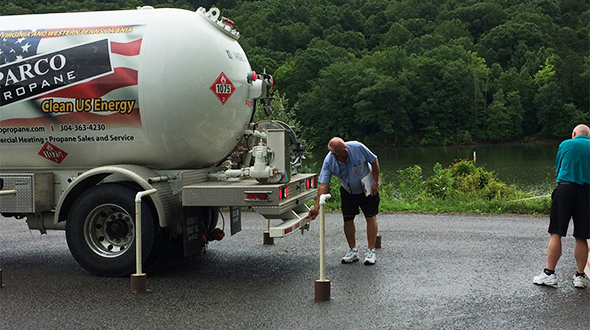Propane Fuels America: West Virginia
LP Gas’ yearlong Propane Fuels America series takes a deep dive into how each state benefits from the propane industry. Here’s our report on West Virginia.
Total odorized propane demand (2019): 53 million gallons
U.S. rank for gallons sold: T-44
Gallon sales trend: West Virginia’s gallons have trended upward since it sold 35 million in 2017 and 39 million in 2018.
Census region/division gallons: South: 2.61 billion/South Atlantic: 1.37 billion
Propane autogas school buses: Out of an estimated 2,869 school buses in West Virginia in 2020, 42, or 1.48 percent, were fueled by propane. Given such low penetration of propane school buses in the state, there is an opportunity for growth.
Market Pointers
⦁ Traditional markets – including home heating, cooking and commercial uses – continue to serve the propane retailer well in West Virginia. Eighty-seven percent of the state’s gallon sales come in the residential and commercial markets.
⦁ Some propane industry companies and organizations partner with West Virginia University’s National Alternative Fuels Training Consortium, a nationwide alternative fuel vehicle and advanced technology vehicle training organization.
⦁ The unique shape of West Virginia can sometimes pose supply challenges in getting propane in, across or through the state, says Tom Osina of the West Virginia Propane Gas Association – “which is why the development by NPGA to get regional hours-of-service waivers has worked very well for us.”
⦁ Decisions by state government leaders have resulted in pluses and minuses for the industry. For example, Volkswagen settlement funds have been used primarily for electric vehicles, Osina says. But a Republican governor and an overwhelmingly Republican legislature have backed a mostly pro-business, anti-regulation environment. New legislation protects propane from municipal gas bans.
⦁ In 2020, West Virginia was the second-largest coal producer in the nation, accounting for 13 percent of total U.S. coal production. Because of increases in natural gas and natural gas liquids production from the Marcellus and Utica shales in northern West Virginia, natural gas surpassed coal for the first time in 2019 and became the largest contributor to the state’s energy economy. “You would think with all of the fracking we would be swimming in propane,” Osina says. “I’m told as soon as it’s created, it’s going out of state.”
Fast facts
State association affiliation: West Virginia Propane Gas Association (WVPGA)/wvpropanegas.org
Marquee events in 2021-22: The association held an in-person membership meeting in June – its first and only in-person event since the pandemic began. It’s looking to plan a bobtail rodeo for 2022.

A bobtail rodeo has been a trademark event of the West Virginia Propane Gas Association. Photo by Tom Osina
Before COVID-19: The propane industry in West Virginia had contributed over $1.1 billion to the 2018 state economy. It’s too early to assess COVID-19’s impact on the state’s gross domestic product.
Leadership update: Osina says he plans to retire as executive director at the end of 2022, and will have spent about 40 years in the industry.
“If you’re a propane dealer in West Virginia, you actually have a good business environment to work in, but the ancillary markets are not growing very much at this point.” – Tom Osina, WVPGA, referencing propane’s role in markets like autogas and agriculture
What’s the weather?
Average temperature (2020): 53.9 degrees F
Annual heating degree-days five-year average (2015-19): 4,783
U.S. average: 4,090
Sources: Propane Education & Research Council’s U.S. National and State Propane Market Profiles; Annual Retail Propane Sales Report; propane.com; West Virginia Propane Gas Association; U.S. Energy Information Administration’s State Energy Profiles
















